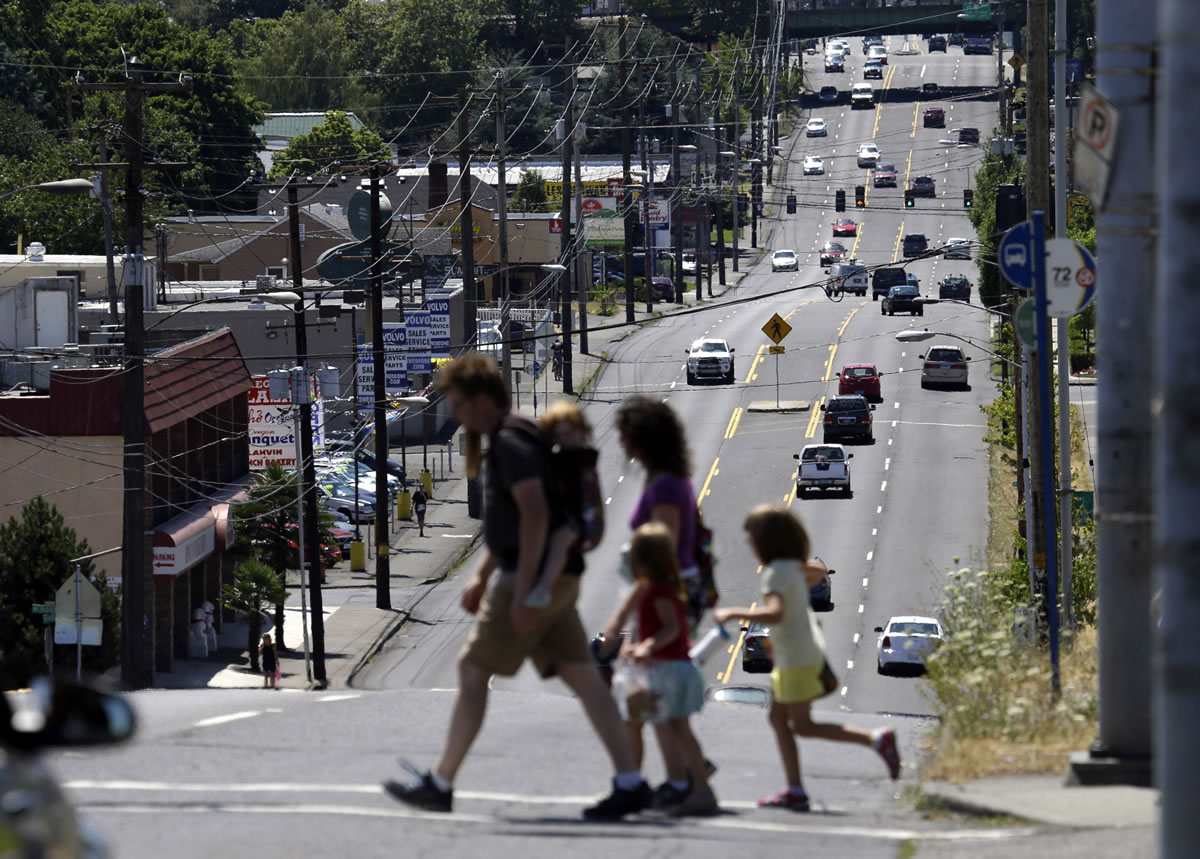PORTLAND — Community leaders say the city of Portland must do more to stop involuntary displacement of residents and businesses caused by gentrification.
Low-income and immigrant families from East Portland — a historically neglected, ethnically and racially diverse part of town — testified at a meeting this week that they are being forced out by rising rents.
Advocates say the city should require developers to make a percentage of housing units in new development available for affordable housing. The practice, one of several recommendations presented at the meeting, is called inclusionary zoning and currently isn’t allowed in Oregon, but many local officials support it.
Other solutions call for nonprofit groups to rehab shoddy multifamily apartments for use as affordable housing and the expansion of programs that help seniors on fixed incomes pay taxes. Advocates say the city should also halt no-cause evictions, push for local rent control and for a living wage.
“There is no excuse … to allow Portland’s most vulnerable community members, families, and businesses to be eradicated from Portland. This is unacceptable; it is shameful,” said Lore Wintergreen, a city employee who advocates for the East Portland Action Plan, a blueprint to improve the area.
City officials say they’re aware of the problem and are trying to help. In recent months, the Portland City Council approved rules that require landlords to give 90 days of notice to tenants when evicting them without cause or raising rent by more than 5 percent. Previously, the requirement was 30 days of notice in most cases.
Mayor Charlie Hales said he has also passed a demolition delay, is working on expanding affordable rental housing and is leading a residential infill project to increase housing stock and reduce the pressure on the housing market.
Many of the actions recommended by advocates would require state action, Hales’ office said, including restoring inclusionary zoning and raising the minimum wage. Hales has already advocated for the changes at the state Legislature, said Sara Hottman, the mayor’s spokeswoman.
Wintergreen said city officials are in denial that displacement is happening, because over the past two decades East Portland has been a poor working-class area. A quarter of all Portland residents now live in East Portland, including a large percentage of the city’s children and immigrants.
But as Portland has faced one of the lowest vacancy rates in the nation and rents have ballooned, many residents are moving farther out from the popular city core. New public and private investments in East Portland parks, streets and other amenities are also poised to make the neighborhoods more attractive to middle-class residents.
Their arrival is pushing up rents and housing prices. Poor residents in shabby housing complexes are being evicted so that owners can renovate them and raise rents. And families who can no longer afford to pay are moving to other cities or doubling-up with family or friends.
Anna Litvinenko, a mother of four whose family was evicted without a cause from their two-bedroom East Portland apartment in October, was forced to move in with her sister’s family. Before the eviction, Litvinenko said she had looked for five months for a bigger apartment, but could not find anything affordable.
“We didn’t have a place to go to after the eviction,” Litvinenko said. “We applied everywhere and put our names on each and every single waiting list, but no success yet.”



